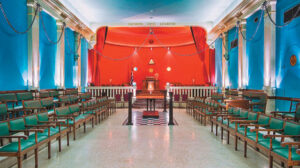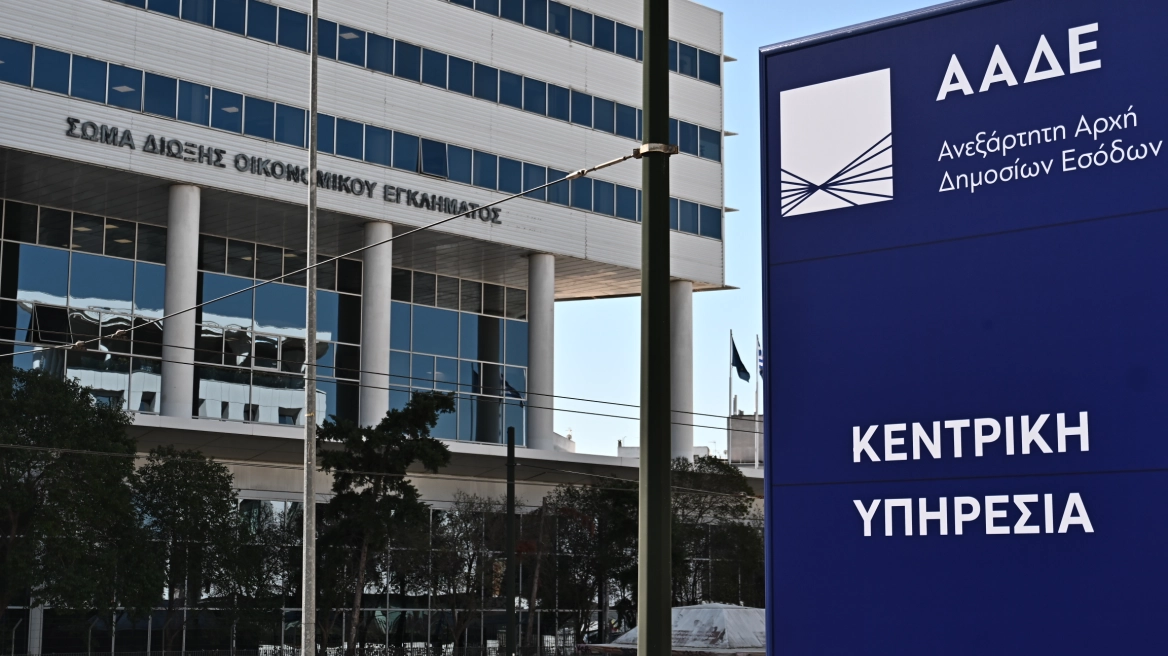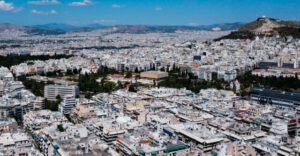Although one of Freemasonry’s fundamental principles is the “study of love” among its members, its long history in Greece has been marked by conflicts and irregularities, leading to internal “civil wars.” Doctrinal and financial issues have frequently been at the heart of these disputes, often cloaked in silence.
However, some cases inevitably come to light—like that of a former accountant of the Grand Lodge of Greece, who was accused of embezzlement and sentenced to seven years in prison last year. There are also other types of financial disputes. According to a report by Thema, a foreclosure auction is scheduled for July 2025 for one-fifth of the Masonic Hall in Athens, located on Acharnon Street. The auction was initiated by the Grand Lodge of Greece against the debtor, the Masonic Union.
A Conflict Within Shared Walls
This dispute is literally “within the walls,” as both the Grand Lodge of Greece and the Masonic Union are headquartered in the same magnificent building at Vathis Square, which is now the subject of the auction. According to the auction document, the electronic hammer is set to strike on July 2, 2025. The creditor is the “Association of Persons Without Legal Personality under the name ‘Grand Lodge of Greece’,” located at 19 Acharnon Street in Athens. The debtor is the “Association under the name ‘Masonic Union’,” located at 19 Acharnon and Sourmeli Streets.
What’s Going Under the Hammer?
The seized property pertains to “full ownership of one-fifth (20%) of an undivided property described in the deed of acquisition as a two-story house with all annexes, accessories, and additions, covering a total area of 440.00 square meters.” It is clarified that the property is currently a six-story commercial building (ground floor, five floors, basement, and roof terrace) constructed on a 440 square meter plot with frontage on Acharnon and Sourmeli Streets. The building includes:
- Basement (378.60 sq. m.): Mechanical room, public restrooms, gathering spaces, cafeteria, storage areas, and open space on the western boundary.
- Ground Floor (378.60 sq. m.): Entrance and waiting area, cloakroom, and a two-story lecture hall with open space on the western side.
- Mezzanine (160.23 sq. m.).
- First Floor (378.60 sq. m.): Waiting area used as a museum, library, lecture hall, and open space.
- Second Floor (230.75 sq. m.): Three offices, a lobby leading to the interior balcony of the two-story lecture hall, a small meeting room, and open space.
- Third Floor (378.60 sq. m.): Offices, a small lecture hall, and open space.
- Fourth Floor (378.60 sq. m.): Offices, a large lecture hall, and open space.
- Fifth Floor (289.61 sq. m.): Penthouse-style, with offices and a lounge area for secretarial use.
- Roof (47.41 sq. m.)
The total building area is 2,621 square meters, with all levels connected by common stairwells and two elevators. The property’s deed dates back to 1930 and is legally registered at the Athens Land Registry. The starting bid for the 20% share has been set at €239,000, while the amount owed that led to the seizure is €45,300.
Auction Uncertainty
As with any auction, developments could lead to a postponement or cancellation by the scheduled date of July 2, 2025. However, it seems unlikely that a third party will be “allowed” to acquire ownership rights to this property.
Historical Significance
The Masonic Hall of Athens is a landmark of Greek Freemasonry. Built in 1967, it replaced the old two-story Masonic Hall at the same location. Its construction was spearheaded by then Grand Master Alexandros Tzazopoulos, who deemed the building essential to achieving the founders’ goals. The Hall also houses the Masonic Library and Museum, showcasing artifacts from prominent Freemasons, historical documents, Masonic medals, and financial bonds from the 1960s used to fund the building’s construction.
The Grand Lodge
Freemasonry in Greece began in the 18th century, with lodges in Corfu and Constantinople. The first Supreme Masonic Authority was founded in 1864, followed by the first Greek Masonic Constitution in 1867. The Grand Lodge of Greece, established in 1928, remains the main Masonic body in the country, overseeing 117 lodges in 38 cities.
In recent years, efforts have focused on administrative and financial reforms under Grand Master Michael Mattes, who has implemented internal controls and external audits.
The Embezzlement Scandal
A financial scandal erupted in 2018 when a deficit in the Grand Lodge’s accounts was discovered, attributed to past administrations. Legal battles followed, culminating in a 2023 court ruling sentencing the former accountant to seven years for embezzling €714,000.
The Schism
Greek Freemasonry also experienced a split in 1986 with the founding of the National Grand Lodge of Greece. This new body, headquartered at Eressou Street, now has 1,580 members and maintains international recognition. Efforts for reconciliation between the two major lodges have so far been unsuccessful.
This complex and often contentious history highlights the challenges within Greek Freemasonry as it navigates both internal and external conflicts.
Ask me anything
Explore related questions





